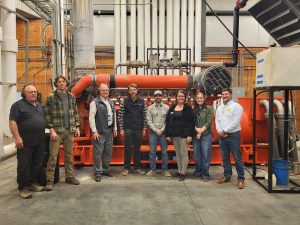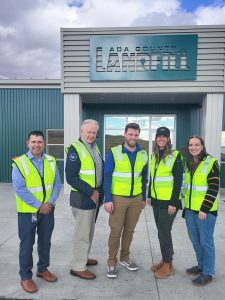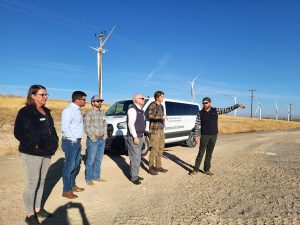Commissioners Host Educational Landfill Tours for Legislators in Twin Falls and Ada Counties
31 Oct 2024, by Sara Westbrook Share :Recently, county commissioners in Ada County and Twin Falls County demonstrated their proactive approach to understanding solid waste management. They organized educational tours of their waste facilities, aiming to improve public understanding of the county’s roles and responsibilities. Multiple legislators joined these tours, showing their commitment to ‘talking trash’ and delving into the intricacies of landfill operations.
The Southern Idaho Facility Tour
Twin Falls County Commissioner Brent Reinke invited incoming legislators to tour the Southern Idaho Solid Waste District’s Landfill facility in southern Cassia County. The tour kicked off at the Twin Falls County Courthouse, where the group met Nate Francisco, the district facility’s Executive Director and CEO.

During the drive, Francisco gave a brief history of solid waste management here in Idaho. He shared that before the early 1990s, many cities in Idaho had their own “city dumps” where folks took their garbage. That all changed when the federal government initiated new stringent public health regulations in the late 1980s and early 1990s. This led to new laws in Idaho, giving counties the sole responsibility for solid waste within their counties. During this time, the legislature recognized that not every county would have the ability to fund a new facility or maintain it on their own, so they created the option for counties to form solid waste districts. The Southern Idaho Solid Waste District, made up of seven counties in the Magic Valley, was formed soon after the legislation passed. The tour allowed legislators to have a close view of what it takes to run an efficient landfill, including the challenges counties face to ensure the health and safety of the public while continuing to build in efficiencies.
The Ada County Facility Tour
Ada County Commissioner Rod Beck and the Ada County Landfill Director Herb Cantu hosted Senator Lori Den Hartog and Senator Ben Adams for a site tour. Commissioner Beck and Director Cantu kicked off the tour with a brief history of the Ada County Landfill, including the county’s ongoing responsibilities to ensure the safety of the public. A county’s obligations and liability do not end when a landfill cell closes. Even if it has been closed for decades, the county is responsible for continuing to monitor the cell to ensure that regulation requirements are met.
 The tours provided a valuable educational experience for the legislators, offering them the opportunity to ask questions and gain a deeper understanding of solid waste operations. They learned about the complex long-term planning required to manage the rapid growth in the Treasure Valley, leaving them feeling more informed and enlightened about waste management.
The tours provided a valuable educational experience for the legislators, offering them the opportunity to ask questions and gain a deeper understanding of solid waste operations. They learned about the complex long-term planning required to manage the rapid growth in the Treasure Valley, leaving them feeling more informed and enlightened about waste management.
Funding Facilities & Facing Challenges
Both tours discussed at length the responsibilities of county commissioners to maintain and operate waste disposal systems (Idaho Code 31-4403). For some counties, like Ada, this means owning and operating their landfill site funded as an enterprise fund. An enterprise fund is a self-sustaining fund that operates like a business, where the services provided at the site are funded from user fees collected at the site. No property tax dollars are used to fund the Ada County landfill. Other counties levy a solid waste property tax to fund their county landfill. Still, other counties in Idaho have regionalized by creating a regional solid waste district to spread out the costs of the responsibility. These regional facilities are generally funded through the solid waste levy, user fees for service, and, more recently, off of power generated from methane gasses converted into energy that is then sold to the grid.
 Both tours also highlighted the collaborative efforts of the Idaho Department of Environmental Quality (DEQ) and Public Health Districts. These entities work together to provide regulatory oversight over the facilities, ensuring that waste management is conducted in a safe and responsible manner. However, the tours also shed light on the funding challenges these organizations face in maintaining this crucial oversight.
Both tours also highlighted the collaborative efforts of the Idaho Department of Environmental Quality (DEQ) and Public Health Districts. These entities work together to provide regulatory oversight over the facilities, ensuring that waste management is conducted in a safe and responsible manner. However, the tours also shed light on the funding challenges these organizations face in maintaining this crucial oversight.
“We are deeply grateful to our state and local leaders for recognizing the vital role our waste management services play in keeping our communities healthy and clean,” said Francisco. “Our innovative approaches and strategic long-term planning have not only modernized waste disposal but also delivered cost-effective solutions and exceptional service standards that benefit residents across the region.”
To view the full photo album from these tours, visit our Flickr Page.






